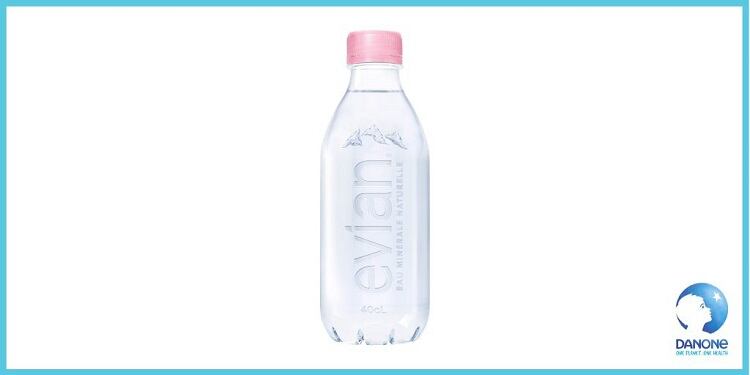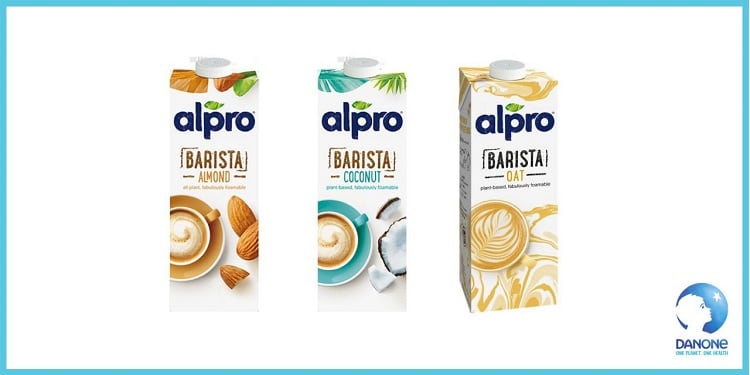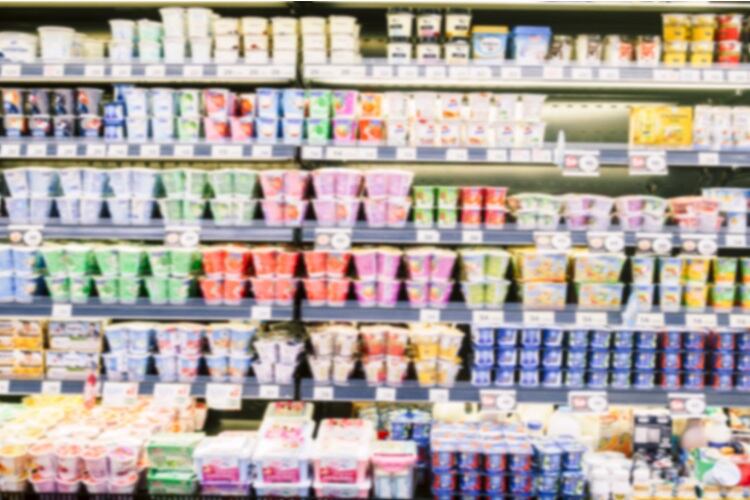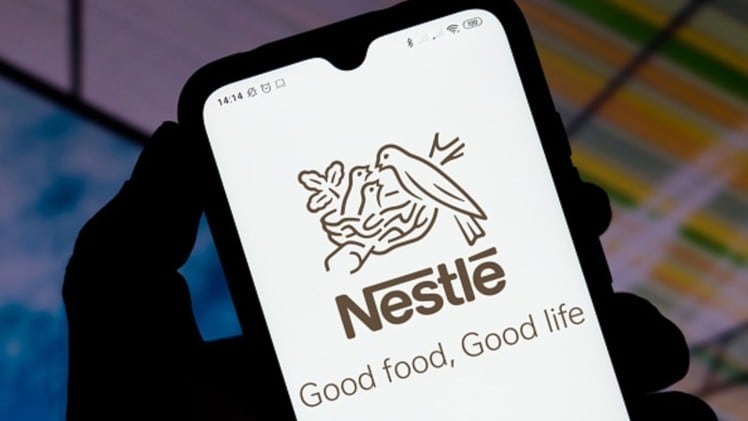‘Unhealthy’ food products – those high in fat, salt and sugar (HFSS) – are in the spotlight in the UK, where the Government has brought in rules limiting where they are located in stores.
Rules banning multibuy deals on HFSS food and drinks are expected to come in later this year, with restrictions banning HFSS adverts on TV before 9pm and paid-for adverts online are tipped to come in early 2024.
According to dairy major Danone, health is also front-of-mind for consumers. Research commissioned by Danone UK & Ireland suggests that 94% of UK consumers try to eat healthily and pay attention to the food they eat all, or at least some of the time.
Consumers are most conscious of the sugar and fat content of a product when making purchasing decisions, the recent research revealed.
It is in this context that Danone UK&I – best-known for its yogurt, plant-based drinks and water products in the region – has announced new health commitments for its consumer portfolio of brands.
The commitments
Danone UK&I is making three new commitments covering its dairy, plant-based and water products. Brands implicated include Alpro, Activia, Light & Free, Actimel, Oykos, Volvic and Evian.
Danone UK&I’s first commitment is that 90% of its portfolio of products by volume of sales will not be HFSS, defined by the UK Government’s current policy and legislation related to HFSS.
Secondly, at least 90% of its portfolio by volume of sales will be rated as ‘healthy’ – receiving a score of at least 3.5 stars out of 5 – within the Health Star Rating (HSR).
And thirdly, that Danone UK&I will never produce an HFSS product for children, as defined by the UK Government’s current policy and legislation related to HFSS.
“We’re proud to have taken on the challenge and to have achieved this level of healthy product. This is the result of taking decisions to delist products and investing in reformulations,” Zoe Ellis, Danone UK&I head of consumer nutrition, told FoodNavigator.
“These commitments will also determine what we can add to our portfolio in the future and how we play in categories, for instance the occasional treat/dessert category.”
What’s included and what’s not?
Danone UK&I’s specialised nutrition products – including infant formula, young child formula and medical nutrition – are not included in the new commitments due to the specific nutrition needs of consumers and patients in those categories.
The company’s water brands – including Harrogate Spring Water, Evian, and Volvic – however, are.
As the new commitments apply to Danone UK&I’s portfolio of products by volume of sales, large volumes of water product sales could make it easier for the company to adhere to non-HFSS targets.

Citing commercial reasons, the company was unable to disclose the percentage of its total sales volume for its water brands. But according to Danone UK&I’s Ellis, its water brands offer healthier choices for consumers and strengthens its health commitments. “For instance, through our various water brands, we provide consumers with a range of healthier alternatives to high-sugar fizzy drinks.”
While the company’s water brands are non-HFSS, not all score highly according to the HSR algorithm. Volvic Touch of Fruit, for example, is non-HFSS, but some of the Touch of Fruit range scores lower on the international HSR, Ellis explained. “This means that including our waters portfolio does not necessarily mean it is easy to achieve our commitment of having at least 90% of our portfolio rated at least 3.5 out of 5 on the HSR.”
Challenging areas: fat and sugar
Reformulation is nothing new to Danone UK&I. Indeed, the company has been working on product reformulation ‘for years’.
For yogurts in the company’s portfolio, sugar and fat can be the most challenging HFSS elements to reduce, explained Ellis. This is because they are naturally occurring in yogurt and help to give it the right taste and texture profile.
“Sometimes when fruit is added to yogurts to give them different flavours, this can also impact the sugar levels even if they are naturally occurring sugars.
“Despite this, through years of innovation and reformulation, we have worked to find a good balance for our brands to ensure we can offer healthy, tasty yogurts – the majority of which are non-HFSS.”
The company is not solely focused on removing problem nutrients fat, salt, and sugar, however. “Our dairy products also contain many positive nutrients such as calcium, natural ferments and vitamins B6 and D which can provide positive health benefits for consumers.”
Some products already under the HFSS threshold, but not all
Having already been working on cutting sugar and fat, most of the products in the company’s Alpro and Activita brands were already beneath the threshold for HFSS.
“Particularly with Actimel, we have reformulated a significant amount within the past 12 months and can now say that by volumes of sales, 90% of our dairy, plant-based and waters portfolio is HFSS compliant,” explained Ellis.
“Through our new health commitments, we have pledged to never drop below this standard as we priorities healthy products.”
In sugar reduction, the company has achieved a 16% reduction in the yogurt and fromage frais – ahead of the 13.5% average sugar reduction achieved across the category – but did not disclose the tools it is employing to cut sugar while ensuring continued consumer acceptance.
“We have committed significant efforts and research to understand how we can make products like Actimel continue to taste great alongside ongoing efforts to reduce the amount of sugar in them,” Ellis told this publication.

In committing to have at least 90% of its portfolio HFSS compliant, FoodNavigator was interested to know which products fall in that leftover 10% or less.
The company believes it’s important to continue to offer consumers a small range of dairy and plant-based products that are intended as an occasional treat with a balanced diet. “Many of these products, such as our Oykos yogurts, are chosen by consumers instead of a higher calorie dessert or snack option.”
Danone measures health with Australia and NZ Health Star Rating
As part of Danone UK&I’s new commitments, the company has pledged to have at least 90% of its portfolio by volume of sales rated as ‘healthy’ – meaning that it achieves a score of 3.5 stars out of 5 according to the Health Star Rating (HSR).
HSR is a voluntary front-of-pack labelling scheme adopted in Australia and other countries that gives a score from 0.5 stars to 5 stars. The scheme considers the total energy of a food, the amount of positive nutrients and ingredients such as fibre, protein and legumes, as well as the amount of nutrients of concern such as sugar, saturated fat and salt.
“Widely used by the industry, we feel Australia’s HSR is a credible guideline that helps inform our decision-making when we assess the composition of our portfolio,” explained Ellis.
The company doesn’t currently have plans to feature it on-pack, as it often is in Australia and New Zealand, but expressed its commitment to front-of-pack labelling for its product lines in the future.
“In order for front-of-pack labelling to support consumers in making healthier choices, we believe that labelling must be clear and regionally consistent, and that it needs to be in-line with UK and European standards. As soon as these standards have been agreed upon, Danone UK & Ireland will respond accordingly.

While the HSR may be widely used by industry – Nestlé also recently revealed it will benchmark its food and beverages against the same algorithm – it has received some criticism. In 2018, research conducted in Australia found that over half (57%) of new discretionary (most energy-dense, nutrient-poor) food products achieved an HSR rating of ≥2.5 health stars. “The HSR system is undermining the ADG recommendations through facilitating the marketing of discretionary foods,” noted the researchers.
The same researchers, in a separate paper, also associated HSR was mostly used on products considered ultra-processed foods.
In response, Danone reiterated the scheme’s wide use amongst industry players. “We’re committing to 90% of our portfolio being rated 3.5 stars or above, and we feel this benchmark identified which products are healthier choices for consumers.”
The Access to Nutrition (ATN) Index also uses the HSR. The most recent global index ranks Danone in fourth place, after Nestlé, Unilever, and FrieslandCampina.
“ATNI (Access to Nutrition) uses the government recommended threshold of 3.5 stars or more to classify products as generally healthier,” Ellis explained.
Nutrients
‘Do nutrient-based front-of-pack labelling schemes support or undermine food-based dietary guideline recommendations? Lessons from the Australian health star rating system’
Published December 2018
DOI: 10.3390/nu10010032
Authors: Lawrence M, Dickie S, Woods J.
International Journal of Behavioral Nutrition and Physical Activity
‘Analysing the use of the Australian Health Star Rating system by level of food processing’
Published December 2018
DOI: 10.1186/s12966-018-0760-7
Authors: Dickie, S., Woods, J.L. & Lawrence, M.




